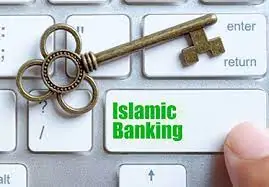
Everyone was accustomed to conventional banking until the fall of the 1960s when Islamic banking was formally introduced as another form of banking. Since then, Islamic banking has been growing rapidly. From 2009–to 2013, Shariah-compliant banking grew by 17.6%, which was faster than conventional banking at the time.
Today, Islamic banking assets are worth over $2 trillion. Saudi Arabia is the most prominent Islamic banking market, with a 33% share of the industry. Over 80% of the assets are held in Islamic countries.
Islamic banking refers to financing or banking activities that comply with Shari’ah law. Shariah law is derived from the religious precepts of Islam and that of the Qur’an. Islamic banking has two fundamental principles: the sharing of profit and loss; and the prohibition of the collection and payment of interest by lenders.
The prohibition of collection and payment of interest is influenced by Shari’ah law. The prohibition of the collection and payment of interest is the primary difference between conventional banking and Islamic banking. Shari’ah law prohibits usury and any form of speculation.
For businesses, Islamic banks cannot make investments that involve substances that are prohibited by the Qur’an, which includes but are not limited to gambling, pork, and alcohol. Bankers who offer Islamic banking services have to abide by the fundamentals of the Qur’an while they conduct business.
Since Islamic banks do not charge or collect interest on borrowed capital, these banks use an equity participation system to earn money without having to charge interest. Equity participation refers to share ownership in a company or an allowance of partial ownership in exchange for financing.
An Islamic bank needs to operate using Islamic principles in its entirety. However, conventional banks can also provide Islamic banking services through a dedicated section or window. The Islamic banking services provided by commercial banks are based on Islamic principles. Therefore, there is no deviance from Islamic principles as long as Islamic banking services are provided.
It is important to understand that Islamic banking can be considered a culturally distinct form of ethical investing due to the abidance of the Qur’an and Shari’ah law.
The principles of Islamic banking lay the foundation of how Islamic banks should operate. Most scholars view the guiding principles of Islamic banking as fairness, justice, transparency, and the pursuit of social harmony as the most important.
Here are some of the characteristics of Islamic banking:
Islam considers lending with interest payments an exploitative practice that favours the lender at the expense of the borrower, who has to pay interest for the money borrowed regardless of the outcome of the cash employed.
According to Shari’ah law, interest is usury (riba), which is prohibited by Shariah law. Riba is mentioned in several verses of the Qur’an and forbids crediting interest from loans or deposits.
A number of activities are prohibited by Shari’ah law, and banks that offer Islamic banking should not be involved in business activities that are prohibited by Shari’ah law. Activities that are prohibited by Shariah law include usury, ambiguity in contracts, gambling and games of chance, fraud, bribery, the use of false weights and measures, and taking others’ property unlawfully.
These activities are regarded as haram (forbidden by Islamic law). Therefore, any investment in such activities is strictly forbidden.
Speculation, or maisir, is prohibited by Shari’ah law. Therefore, Islamic banks do not engage in any type of speculation. Gambling is also seen as a form of speculation. Islamic financial institutions cannot be involved in contracts where the ownership of goods depends on an uncertain event in the future.
Risk and uncertainty form a substantial part of Shariah law and are forbidden. Islamic financial institutions are banned from participating in contracts with excessive risk and/or uncertainty.
The term “gharar,” which means chance, uncertainty, or risk, measures the legitimacy of risk or uncertainty in investments. An Islamic financial institution cannot take part in short selling as the Gharar principle does not allow such.
Islamic institutions form partnerships instead of investing to earn interest. Mudarabah is a profit and loss sharing partnership agreement whereby one partner provides capital to another partner who is responsible for the management and investment of the capital.
Mudarabah is a name that is used in Islamic banking and entails that profits should be shared by participating partners, which is the lender and the borrower. Parties involved share profits according to a pre-agreed ratio.
Musharakah is a form of joint venture where all partners contribute capital and share profit and loss on a pro-rata basis. The most common Musharakahs are:
This partnership is more popular with partnerships that want to acquire properties. Normally, a bank and an investor join forces to purchase a property, and subsequently, the bank transfers its equity portion in the property to the investor in exchange for payments.
This partnership is popular with long-term projects since the partnership does not have any specific end date and continues to operate as long as the parties involved agree to continue to operate.
Leasing, or Ijarah, is a financing agreement whereby the lessor leases a property or property to the lessee in exchange for a stream of rental and purchase payments. This agreement ends with the transfer of property ownership to the lessee.
FNB Islamic Platinum Business Account
FNB Islamic Gold Business Account Review
Absa Islamic Business Evolve Zero Account
Absa Islamic Evolve Pay As You Transact Business Account.
Absa Islamic Premium Banking Account
Absa Islamic Gold Graduate Account
Absa Islamic Gold Value Bundle Account
Islamic Shari’ah has a number of prohibitions that Islamic institutions need to adhere to. Since these institutions cannot invest in investment vehicles such as bonds and derivatives, they invest in equities and fixed income instruments.
Islamic institutions invest in company shares since Shari’ah law allows such investments. However, investments in shares must not be in companies that engage in prohibited activities. Fixed income instruments that Islamic institutions can invest in are ‘Shari’ah-compliant bonds’, which represent partial ownership.
This website uses cookies.